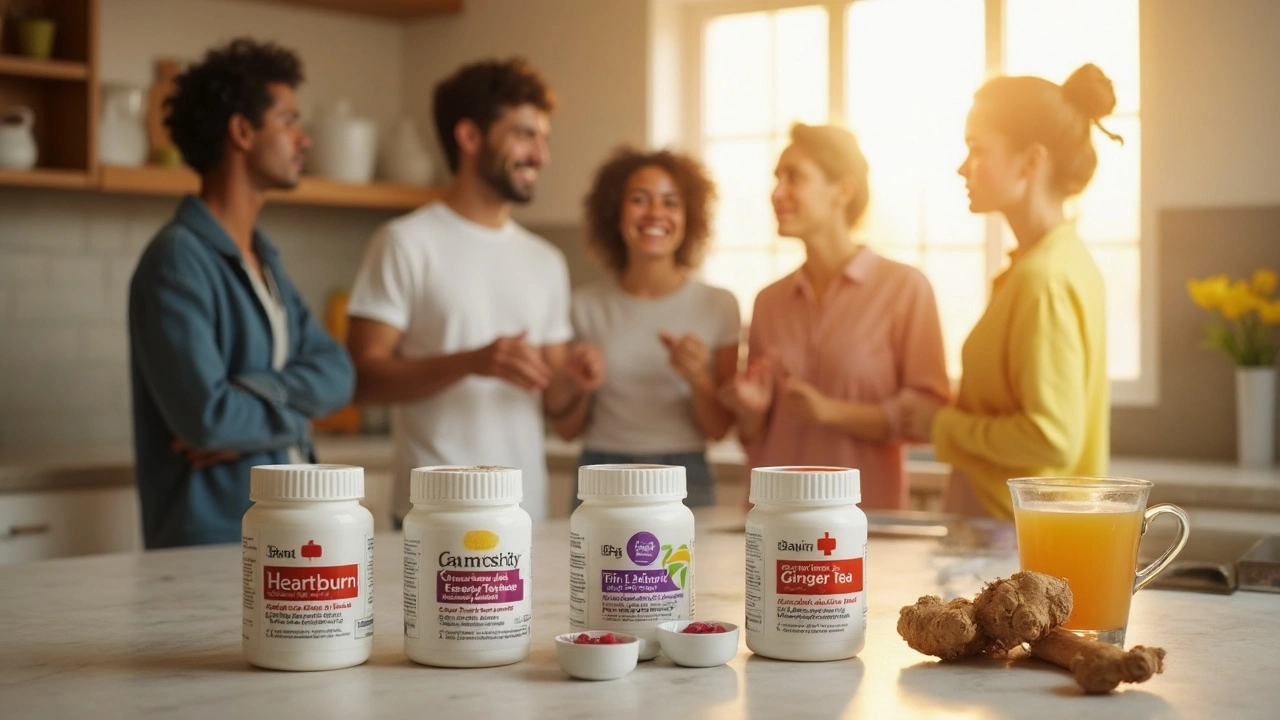PPIs: What They Are, How They Work, and When You Need One
PPIs, or proton pump inhibitors, are medicines that cut down the amount of acid your stomach makes. They’re the go‑to treatment for heartburn, GERD, ulcers, and other acid‑related problems. If you’ve ever taken a pill to settle a burning feeling after a big meal, chances are you used a PPI.
These drugs work by blocking the “proton pump” in stomach cells – the tiny engine that pumps acid into the gut. When the pump is turned off, acid levels drop, giving damaged tissue a chance to heal and preventing painful symptoms.
Common PPIs and When They're Used
There are several PPIs on the market, and most work the same way. The most popular ones include:
- Omeprazole (Prilosec) – often the first pick for occasional heartburn and short‑term ulcer treatment.
- Esomeprazole (Nexium) – a stronger version of omeprazole, used for severe GERD or when symptoms return quickly.
- Lansoprazole (Prevacid) – good for people who need a daily dose but want a lower chance of drug interactions.
- Rabeprazole (Aciphex) – works fast and is helpful for patients who have trouble swallowing pills.
- Pantoprazole (Protonix) – often prescribed for hospital patients because it’s easy to give intravenously.
Doctors usually suggest a PPI for at least 4‑8 weeks to let ulcers heal or to control chronic reflux. Some people take them long‑term, but that should be monitored closely.
Tips for Safe Use & When to Talk to Your Doctor
PPIs are safe for most users, but a few habits can make them even safer:
- Take the pill 30‑60 minutes before breakfast. Food can interfere with how well the drug works.
- Don’t chew or crush the tablet – it needs to stay intact to release properly.
- Watch for side effects like headache, mild nausea, or constipation. These usually fade after a few days.
- Long‑term use (more than a year) may raise the risk of low magnesium, vitamin B12 deficiency, or bone fractures. If you need a PPI for a long stretch, ask your doctor about periodic blood tests.
- If you’re on blood thinners, certain antibiotics, or HIV meds, tell your doctor. PPIs can change how those drugs are absorbed.
Stop taking a PPI suddenly only if your doctor says it’s okay. Going cold turkey can cause a rebound increase in stomach acid, bringing back the very symptoms you were trying to control.
Bottom line: PPIs are powerful tools for managing acid‑related issues, but they work best when you follow dosing tips and stay in touch with your healthcare provider. Have questions about which PPI fits your lifestyle? Talk to your doctor and make an informed choice.
-
 VIEW POST
VIEW POSTFamotidine Alternatives in 2025: 8 Options That Go Beyond Heartburn Relief
Apr, 23 2025|12 CommentsSick of relying on Famotidine for heartburn or acid reflux? This guide breaks down eight newer or overlooked alternatives in 2025, showing how they work, when they’re useful, and what trade-offs to look out for. With so many people searching for better relief, understanding each option’s benefits and drawbacks saves money, time, and frustration. Get the info you’d want if you’re weighing your choices, and see how today’s alternatives compare side-by-side. Your stomach will thank you.